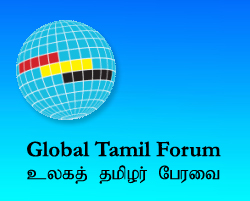
GTF: An appeal to all Tamils to cast their votes and cast them wisely
The upcoming Parliamentary Election poses serious challenges for the people of Sri Lanka. Democratic fundamentals and the multi-ethnic, multi-lingual, multi-religious character of the state are very much at stake. Under the present government, the tilt towards authoritarianism and militarisation is unmistakable. Though the implications are for all the people of Sri Lanka, Tamils and other minority communities could become the biggest victims of such regressive transition. It is important therefore that Tamil people are conscious of this threat when making their electoral choices.
On top of these, Tamil people have many more challenges to contend with. The Rajapaksas-led political ‘movement’ is highly insensitive to the concerns and aspirations of the minority communities. No commitment made to accountability and reconciliation, instead, increased militarisation of civil functions in the North-East and appointment of all-Sinhala task force to ‘preserve the historical heritage of Sri Lanka’ in the multi-ethnic Eastern Province are just a few examples of such blatant callousness. More ominous is the possibility of losing some of the fundamental reforms such as power devolution under 13th Amendment and the parity status for Tamil language.
Despite all the disappointments and frustrations experienced by the Tamil community, there have also been some progressive changes over the last 5 years such as – notable relief due to de-escalation of the military stranglehold in the North-East; restoration of constitutional processes during the 2018 political crisis in the Parliament; dilution of apprehensions and animosities existed between Tamils and other communities; and outside the country, increased justification and acceptance for the Tamil struggle in the major capitals of the world. Tamil political leadership, through its far-sighted political approach, has contributed towards these progressive changes. These fundamental building blocks are crucial for future political settlements and need to be further strengthened, not weakened, as Tamil struggle moves on.
The period ahead will test the capacity and capability of the Tamil political leadership. Forming effective partnerships with the elected representatives from all minority communities and with those from the majority community with progressive views, could be critical. So is fostering effective engagement strategies with the international community, in particular with India. Perhaps the better strategy for the Tamil community would be protecting the hard-won gains, while exploring opportunities for furthering its vital community interests.
So, what should the Tamil community do at this election? First and foremost, ensure that people appreciate the significance of this election and the power of their vote – every vote matter. Second, no vote should be wasted on the multitude of independent groups or those Southern political parties who only have the majority interests at heart, for it will only dilute the strength of the Tamil representation in Parliament hindering future political negotiations.
The sensible choice for the Tamil voters is to vote for a political formation that has the long-term legitimate Tamil national interests as their guiding principle. The history of the party in articulating for Tamil interests with realistic expectations, its capacity to represent Tamil people from all parts of North-East, and its ability to navigate Tamil politics through the turbulent times ahead in the Parliament to reach a just constitutional solution– all these have to be given serious thought. Not to mention individual candidate’s track record for hard work, effectiveness and impact, as well as the need for gender parity in Tamil politics, when considerations are given about the preferential vote.
We have no doubt Tamil voters will make the right decision giving careful consideration to all the above before casting their precious votes.

